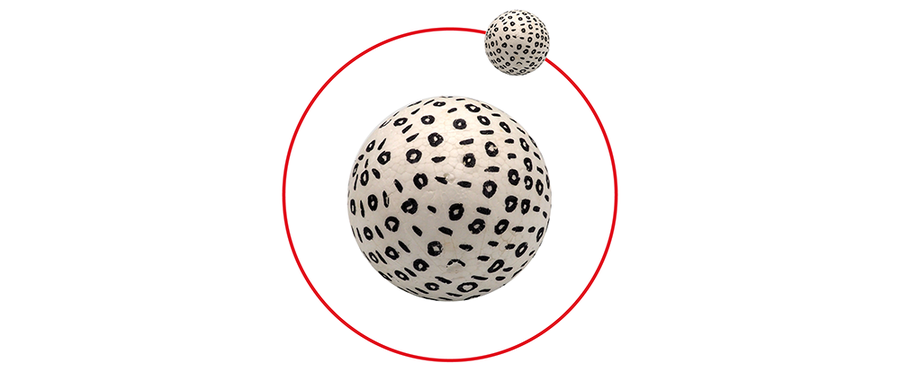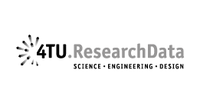Research data management concerns the organisation of data, from its entry to the research cycle through to the dissemination and archiving of valuable results. It aims to ensure reliable verification of results, and permits new and innovative research built on existing information | Whyte and Tedds, 2011
Research data have a longer lifespan than the moment they are generated. One way of looking at this is with a so-called research lifecycle. In this section, we will explain the concept in more detail.
Different lifecycles
A life-cycle model provides insight into how the various phases in the life of research and research data fit together and how the choices you make in one phase influence data quality in the other. In this way you can shift the perspective from the short term to the long term: what do we want with these research data?
There are many lifecycles in circulation, focused on a certain use or a certain user group. In the slideshow below we show some of them.
Data archives that focus on long-term preservation sometimes speak of a digital curation lifecycle (DCC, n.d.b.). The steps that an archive takes after data ingest are described in more detail in this model. The lifecycle includes activities that focus on the primary goal of a data archive: long-term preservation and making data available for reuse. Employees of the University of Bath (2012) wrote an article in which they compare various lifecycle models.
In the Essentials 4 Data Support course, we use a simplified lifecycle. We distinguish a planning phase (Chapter II), research phase (Chapter III) and harvest phase (Chapter IV).
Data support in distinct research phases
According to Van Berchum & Grootveld (2017), support for data management can take the following forms, depending on the phase in the research lifecycle. Many of these forms will be discussed in more detail in the rest of this course.
I. Planning phase
- Provide support when searching for research data or referring to search systems and search engines (such as NARCIS, DataCite and B2Find);
- Provide assistance with writing a data management plan;
- Offering a template or tool for creating a data management plan;
- Providing information and advice on subsidy provisions and requirements set by research funders (e.g. NWO, ZonMw, Horizon2020 (European Commission, 2016));
- Providing information and advice on codes of conduct such as the Netherlands Code of Conduct for research integrity (VSNU, 2018) and the data management policy of the institution;
- Give advice on legal and ethical issues (such as the GDPR, DPIA (data protection assessment), and anonymization of data);
- Provide advice on the costs of research data management and how to budget for this in a project proposal.
II. Research Phase
- Realizing the desired infrastructure for data management;
- Providing systems for local storage of research data;
- Offering solutions to share data during research;
- Providing software management tools;
- Giving advice about securing data;
- Provide a system for persistent referrals (such as DOI or Handle);
- Refer to discipline-specific solutions;
- Provide advice on metadata(standards);
- Help with documenting data;
- Providing infrastructure / tools for data visualization;
- Offering (high performance) computing services.
III. Harvest phase
- Give advice on sustainable archiving;
- Offering a reliable data archive;
- Referring to reliable data archives (Trusted Digital Repositories);
- Archiving of non-digital data;
- Giving advice about making data accessible (both open access and restriced access and the possibility of an embargo);
- Registering data sets in a local CRIS system;
- Provide information about the access requirements of research funders;
- Provide information and advice about licenses;
- Refer to so-called 'data journals';
- Providing search engines (both local and national (for example NARCIS));
- Offering course modules for students and PhD students.
SURF put together the 'Hbo vraagwijzer onderzoeksdata' (In Dutch; SURF, 2018). This guide can help data supporters working at universities of applied science to gain insight into the questions that a researcher may have in distinct research phases.

Sources
Click to open/close
Ball, A. (2012). Review of Data Management Lifecycle Models. Bath, UK: University of Bath. http://opus.bath.ac.uk/28587
Bosman, J., Kramer, B. (2015) 101 Innovations in Scholarly Communication: How researchers are getting to grip with the myriad of new tools. Impact of Social Sciences Blog (11 Nov 2015). [Blog Entry]. http://eprints.lse.ac.uk/id/eprint/70920
CESSDA. (2018). Data Management Expert Guide. Chapter 1, Research Data. https://www.cessda.eu/Training/Training-Resources/Library/Data-Management-Expert-Guide/1.-Plan/Research-data
DCC (n.d.) DCC Curation Lifecycle model. http://www.dcc.ac.uk/resources/curation-lifecycle-model
European Commission. (2016). H2020 Programme. Guidelines on FAIR Data Management in Horizon 2020. https://ec.europa.eu/research/participants/data/ref/h2020/grants_manual/hi/oa_pilot/h2020-hi-oa-data-mgt_en.pdf
Pepe, A., e.a. (2009). From Artifacts to Aggregations: Modeling Scientific Life Cycles on the Semantic Web. http://dx.doi.org/10.1002/asi.21263
SURF (2018). Hbo vraagwijzer onderzoeksdata. https://www.surf.nl/files/2019-03/hbo-vraagwijzer-onderzoeksdata-web.pdf
UCF libraries (2017). Research Lifecycle. https://library.ucf.edu/about/departments/scholarly-communication/overview-research-lifecycle/
UK Data Service (n.d.) Research Data Lifecycle. https://www.ukdataservice.ac.uk/manage-data/lifecycle
University of Washington (n.d.). MyResearch Project Lifecycle. https://www.washington.edu/research/myresearch-lifecycle/
Van Berchum, M. & Grootveld, M. (2017). Research data management. An overview of recent developments in the Netherlands. http://hdl.handle.net/20.500.11755/a9539a60-ecef-4e62-a998-0fda190b303b
VSNU (2018). Netherlands Code of Conduct for research integrity https://doi.org/10.17026/dans-2cj-nvwu
Whyte, A., Tedds, J. (2011). Making the Case for Research Data Management. DCC Briefing Papers. Edinburgh: Digital Curation Centre. Retrieved fromhttp://www.dcc.ac.uk/resources/briefing-papers





